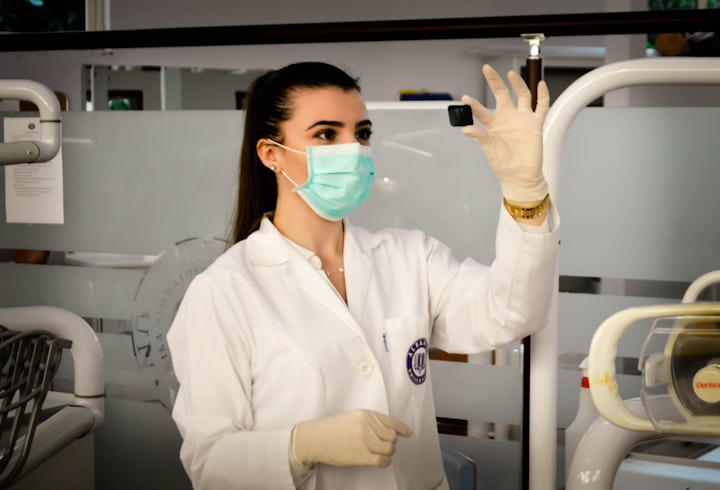Can You Take Norethisterone With PCOS?
What is Norethisterone and How Does it Help With PCOS

Norethisterone is a synthetic version of the natural hormone called progesterone.
Progesterone is produced by the ovaries and is one of the main hormones involved in regulating menstrual cycles and ovulation.
Norethisterone is used to treat endometriosis, an inflammatory condition affecting the uterus.
It can also help reduce pain during menstruation and improve ovulation. Norethisterone can be used in women with amenorrhea (absence of periods or period once every three months), or oligomenorrhea (periods appear every 21-35 days).
It helps balance the levels of estrogen and progesterone in your body, which results in building up your supply of red blood cells for a stronger and consistent flow of blood during menstruation.
Let’s take a look at how you can use norethisterone if you have PCOS:
Norethisterone for Irregular Periods and Amenorrhea
Norethisterone gel can help women with irregular periods, or even no periods at all.
It helps regulate the hormones in your body that are responsible for your menstrual cycle.
This in turn creates a stronger blood supply for a more consistent flow of blood during menstruation.
Norethisterone can also be used to treat amenorrhea, a condition that occurs when a woman doesn’t get her period for three months or longer.
Norethisterone may be helpful for women who have PCOS because it can help to regulate your hormone levels.
What is Norethisterone and How Does it Help With PCOS?

Norethisterone is a synthetic (artificial) version of the natural hormone called progesterone.
It is used to regulate your menstrual cycles and ovulation. If you have PCOS, your body produces too much androgen which increases the male hormone levels in your body.
This makes it harder for your ovaries to release an egg each month. Therefore, you are less likely to get pregnant.
Norethisterone can help you to regulate your hormone levels, which may help you to get pregnant.
It can also help to reduce pain during menstruation and improve ovulation.
Norethisterone for Infrequent Flow and Painful Periods
If you suffer from infrequent or painful periods, norethisterone can help. It is also used to treat heavy menstrual bleeding, endometriosis, and fibroids.
It is sometimes given to women who are going through the menopause to help reduce the amount of blood lost during the menstrual cycle.
In women with PCOS, the continuous use of norethisterone can help to regulate menstrual cycles and reduce painful periods.
It can also help to regulate the hormone levels in your body, which results in a stronger blood supply for a more consistent flow of blood during menstruation.
Can You Take Norethisterone While Pregnant?
It is not recommended that you take norethisterone while you are pregnant as it can affect the fetus.
There are no specific studies that show whether or not norethisterone is safe during pregnancy.
Taking norethisterone while pregnant may increase your risk of developing high blood pressure during your pregnancy.
Can You Take Norethisterone With PCOS?
If you have PCOS, then you may experience irregular or infrequent, or no periods at all.
Taking norethisterone can help regulate your menstrual cycles and ovulation.
It can also help to regulate the hormone levels in your body, which results in a stronger blood supply for a more consistent flow of blood during menstruation.
If you suffer from heavy periods, norethisterone can help to regulate your menstrual cycles and reduce painful periods.
It can also help to regulate the hormone levels in your body, which results in a stronger blood supply for a more consistent flow of blood during menstruation.
Norethisterone for Oligomenorrhea
If you are experiencing oligomenorrhea, which is having periods that happen every 21 to 35 days, then you may want to try taking norethisterone.
It is used to help regulate your menstrual cycles. Norethisterone can also help to regulate the hormone levels in your body, which results in a stronger blood supply for a more consistent flow of blood during your menstrual cycle.
It is important to note that norethisterone can be used to treat oligomenorrhea and menstrual irregularities, but not infertility.
How to Take Norethisterone?
If you have PCOS, then your doctor may prescribe norethisterone. The recommended dosage depends on the severity of your symptoms and your age.
Your doctor will be able to give you the correct dosage. It is important to follow the instructions carefully to avoid side effects.
You can take norethisterone orally with a glass of water, swallow the tablets whole, and take it once a day at the same time every day.
You can also take norethisterone as a gel that you insert inside your vagina with your fingers.
Side Effects of Norethisterone
If you experience any of the side effects from taking norethisterone, make sure to consult with your doctor as soon as possible.
Some of the most common side effects of norethisterone include nausea, vomiting, headache, breast tenderness, dizziness, and mood changes.
Other serious side effects include increased blood pressure, uterine bleeding, and an increased risk of blood clots.
You should avoid taking norethisterone if you have any of the following conditions:
- you have or have had blood clots - you have liver problems - you have a history of heart disease - you have high blood pressure - you have certain types of cancers
Conclusion
Norethisterone is a synthetic version of the natural hormone progesterone and is used to treat endometriosis and menstrual irregularities.
It can help regulate the hormones in your body that are responsible for your menstrual cycle and ovulation.
It can also help reduce pain during menstruation and improve ovulation. Norethisterone can be used in women with amenorrhea (absence of periods or period once every three months), or oligomenorrhea (periods appear every 21-35 days).
It helps balance the levels of estrogen and progesterone in your body, which results in building up your supply of red blood cells for a stronger and consistent flow of blood during menstruation.
About the Creator
Samson Williams
Hey there, I'm Samson Williams, and I'm all about helping folks like you tap into your full potential through the magic of astrology-based transformation. Ever since I can remember, I've been fascinated by the connections between






Comments
There are no comments for this story
Be the first to respond and start the conversation.